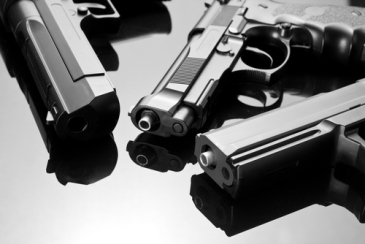Straw Purchasers, Tight Lips Confound Chicago Shooting Investigations
By Chris Bentley in News on Aug 29, 2012 8:20PM
Chicago’s violent summer grabbed national headlines, however briefly, in a flurry of attention worthy of lampooning by The Onion. As police, criminologists, reporters and the like continue to plumb the issue, we learn more about the mechanics of the complex machine that has driven the homicide rate about 31 percent higher than last year.
An “iron pipeline” of guns trafficked from as far away as Mississippi arms unregistered owners and ex-cons through stand-in “straw purchasers,” the Sun-Times reported. Dwan Ryals, for example, used his clean record to buy guns in 2010 that he would pass along to felons for a small cut. Ryals, who served four years in prison for this practice, told police he once sold a handgun to a felon to pay overdue electricity bills.
Nearly one fourth of all straw purchasers whose guns were recovered in crimes less than one year after purchase were women. The single biggest source of those weapons was Chuck’s Gun Shop & Pistol Range in south suburban Riverdale. Since 2008, police have recovered at least 268 guns purchased from Chuck’s.
Just as these disingenuous purchasers can stymie illegal weapons investigations, a culture of noncooperation throws Chicago police off the trail of gun violence investigations. More than 80 percent of the 1,165 nonfatal shooting cases in Chicago during the first seven months of this year have been either suspended entirely, or designated “exceptional cleared closed” because victims declined to cooperate with prosecution. When innocent bystanders are shot, police told the Tribune, witnesses are more likely to volunteer information.
The “no snitching” code still pervades neighborhoods plagued by gun violence. While gang members are traditionally reluctant to talk to police, there is a growing sense of frustration throughout hard-hit communities about how quickly crimes are written off as “gang-related.” When the label proves untrue, it exacerbates a police-community relationship already fraught with mistrust and persistent violence.
